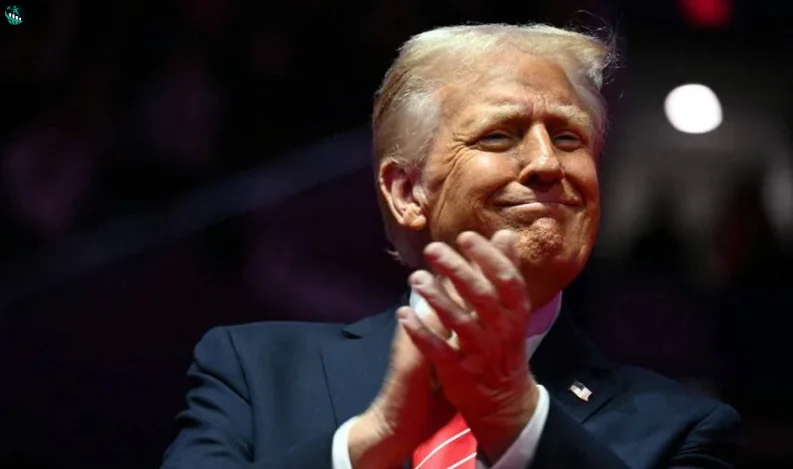
India Slashes Import Duties on American Vehicles and Electronics Amid Trump Tariff Pressure
In a strategic shift outlined in the Union Budget 2025-26, India has announced significant reductions in import duties on high-end motorcycles, luxury cars, and electronic components. The move is seen as a potential boost for major American brands like Harley-Davidson, Tesla, and Apple, particularly as U.S. President Donald Trump continues his aggressive stance on trade tariffs.
However, Indian Finance Minister Nirmala Sitharaman clarified that the duty rationalization is part of the country’s self-reliance initiative, Aatmanirbhar Bharat, and not a reaction to Trump's tariff threats.
"Our focus is on strengthening the Indian economy and enhancing our position as a global manufacturing hub," she stated in an exclusive interview.
Harley-Davidson Rides Back into India’s Market
One of the biggest beneficiaries of the new policy is the iconic American motorcycle brand Harley-Davidson. The Union Budget 2025-26 reduces import duties on completely built-up (CBU) motorcycles from 50% to 40%, providing a much-needed price cut for premium American bikes.
Additionally, duties on semi-knocked down (SKD) kits have been slashed from 25% to 20%, while completely knocked-down (CKD) units will now be taxed at 10% instead of 15%.
Harley-Davidson, which first entered India in 2010 as part of the "mangoes for motorcycles" trade agreement, had briefly exited the Indian market in 2020 due to financial challenges. However, its return through a partnership with Hero MotoCorp ensured that models like the Harley-Davidson 440X continued to be sold in India.
Trump has frequently criticized India's high tariffs on Harley-Davidson bikes, calling them “unacceptable” during his previous presidency. This latest duty reduction may serve as a goodwill gesture to maintain healthy bilateral trade relations.
India Looks to Lure Tesla with Lower Tariffs on Luxury Cars and EV Batteries
India’s tariff reduction extends beyond motorcycles, with significant cuts in the automobile sector. The import duty on luxury cars priced above $40,000 has been reduced from 125% to 70%, making it more feasible for premium foreign automakers to establish a foothold in India.
A key beneficiary of this change could be Tesla, which has been eyeing the Indian market for years but remained hesitant due to high import costs. Additionally, basic customs duties on lithium-ion batteries used in electric vehicles (EVs) have been completely scrapped, further signaling India’s push toward electric mobility.
Tesla CEO Elon Musk had earlier planned a visit to India in April 2024 to discuss potential investments with Prime Minister Narendra Modi, but the trip was postponed due to what he termed “heavy Tesla obligations.” This latest policy shift might revive Tesla’s interest in setting up a production or assembly unit in India.
Apple Gains as India Strengthens Mobile Manufacturing
The Union Budget also includes measures to boost India’s electronics sector. A total of 28 components used in mobile phone battery production will now be exempt from customs duties, lowering production costs for smartphone manufacturers.
Apple, which has steadily increased its presence in India, stands to benefit significantly. The American tech giant has already captured 23% of India's smartphone revenue market share in 2024, according to industry reports. With India now the world’s second-largest mobile phone manufacturer, the tariff cuts further support its ambitions of making India a global production hub.
India Navigating Trump's Trade War Tactics
Trump’s trade policies have created uncertainty in global markets, with the U.S. president often criticizing India’s high tariff regime. He previously threatened to impose reciprocal tariffs on Indian goods and even floated the idea of a 100% tariff on BRICS nations, including India, if they reduced reliance on the U.S. dollar in global trade.
With the latest reductions in import duties, New Delhi is strategically positioning itself in the shifting global trade landscape. By easing access for American firms, India is not only strengthening ties with the U.S. but also hedging against potential disruptions caused by Trump’s aggressive tariff policies.
Experts suggest that this approach will also allow India to benefit from the ongoing U.S.-China trade tensions, as global supply chains look for alternative hubs.
While the Indian government insists that these changes are purely domestic economic reforms, the timing suggests a calculated move to safeguard India’s trade interests in an increasingly protectionist global market.
Conclusion
India’s decision to cut import duties on American motorcycles, luxury vehicles, and electronic components comes at a crucial time when global trade tensions are escalating under Trump's tariff policies. While officially presented as part of India's self-reliance and economic growth agenda, the move could strengthen New Delhi’s trade position with Washington and ensure a more predictable trade environment in the coming year.
With Harley-Davidson, Tesla, and Apple likely to gain from these reductions, the coming months will reveal how effectively India balances its domestic growth strategy while navigating Trump’s shifting trade dynamics.



Recent Comments: